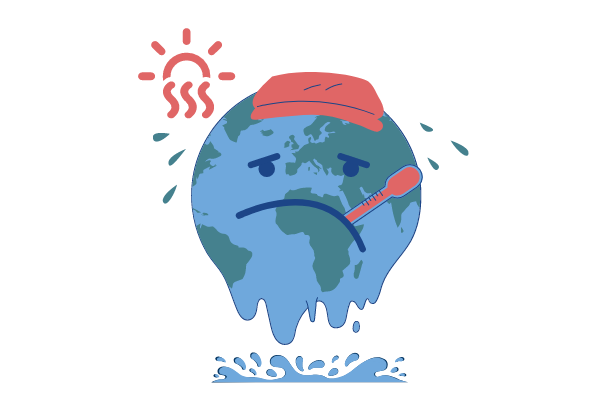Vitamins Amazing Benefits And Advantages For Everyone

Vitamins are biologically active substances necessary for the normal functioning of the body. They contribute to the proper metabolism, increase efficiency, endurance, and resistance to infections. Many vitamins are not synthesized in the body and come only with food. The daily need for them does not exceed a few thousandths, hundredths of a gram. Vitamins are very unstable and are destroyed during cooking. The lack of vitamins in food can lead to severe disorders in the body, which are now rare. Often there is a decrease in the provision of the body with certain vitamins (hypovitaminosis). Hypovitaminosis are seasonal in nature, are observed most often in the winter-spring time, and they are characterized by increased fatigue, decreased ability to work, susceptibility to various colds. An increased need for vitamins occurs with increased physical activity, hypothermia, diseases of the gastrointestinal tract (gastritis, colitis), in women during pregnancy, etc.
Vitamin A is essential for new cell growth, vision, bones, skin, hair and immune system health. Slows down the aging process. The main sources of vitamin A are fish oil and liver, butter, egg yolks, cream and whole milk, sea buckthorn and rose hips, carrots.
B vitamins solve their main function - participation in tissue respiration and energy production, play an important role in maintaining emotional health. In large quantities, B vitamins are found in the liver, pork, kidneys, and heart muscle. In plant products, a large amount of B vitamins is found in cereals and rye bread. All of these vitamins are destroyed by alcohol, refined sugars, nicotine, and caffeine, which is why many people are deficient.
The most rich in vitamin C (ascorbic acid) fruits are kiwi, cranberries, rose hips, red peppers, citrus fruits, black currants, onions, tomatoes, lettuce and cabbage. People should get ascorbic acid from food, because in humans, unlike animals, the gene responsible for the formation of one of the enzymes for the synthesis of ascorbic acid is non-functional.
Vitamin D is synthesized in the body under the influence of ultraviolet rays or comes with food. Cod liver, herring, mackerel, salmon, as well as milk and eggs are rich in vitamin D. However, it is impossible to get the right amount of this vitamin only with the help of products, because they contain it in insufficient quantities. The main source of vitamin D is sunlight. Do not deny yourself daily walks during the daytime. Even if it is cloudy outside, the body is still exposed to ultraviolet radiation.
Vitamin E is a powerful antioxidant. Vitamin E is found in seeds, nuts, oils and spinach. But its richest source is sprouted grains of wheat.
Vitamin K is essential for protein synthesis. Vitamin K is found in green leafy vegetables such as spinach and lettuce, cabbage and cauliflower, broccoli, Brussels sprouts, wheat bran, and some fruits such as avocados, kiwis and bananas. A significant amount of vitamin K is found in olive oil. Today, no one doubts the usefulness of vitamins, especially in the spring, when these substances useful to the body are sorely lacking. To denote a deficiency of vitamins, the terms "hypovitaminosis" and "avitaminosis" are traditionally used (the latter means an extreme shortage in the body of one or a number of vitamins, which is extremely rare). Although specific types of vitamin deficiencies are characterized by specific features, in general, spring vitamin deficiency is manifested by such signs as increased fatigue, loss of appetite, disturbance, various changes in the mucous membranes and skin can be observed, a partial decrease in visual acuity, disturbances in the normal functioning of the gastrointestinal tract and etc. Vitamins are useful elements that are involved in metabolism and the formation of enzymes, they affect the absorption of nutrients, so their deficiency leads to various diseases. And since they are not divided into more or less important for the body, then the deficiency of any of them will sooner or later adversely affect health.
Vitamin A has a beneficial effect on the regeneration of skin cells, enhances the body's resistance to infections. Vitamin A deficiency causes brittle nails, hair loss, and dry skin. In addition, vitamin A deficiency leads to visual impairment, this is especially noticeable to those people who spend all day at the computer - the clarity of the image on the monitor disappears somewhere, there are some glare in front of your eyes, although you just sat down at the computer.
What to do? Daily therapeutic dose of vitamin A, which doctors usually prescribe for dryness and other changes in the skin, nails and hair, contained in 2 tablespoons of fish oil. The same amount of vitamin A is found in 100 g of liver or 300 grams of carrots. Therefore, it is worth "leaning" on foods rich in vitamin A. In addition to the above, this series includes: citrus fruits, butter, cheese, eggs, fish, fish oil, milk, sour cream, cream.
It must be remembered that exceeding the dose of vitamin A (as a rule, this applies to taking artificial multivitamin preparations) is fraught with many troubles: headaches, vomiting, runny nose, weight loss, increased fatigue, liver damage, hair loss, dry skin.
Best Skincare Products
Top Skin Care Products
Best Software For Real Estate
Best CMS For Property

The Urgency of Addressing Global Warming: A Call to Action
- Global warming, caused by human activities, is a pressing issue leading to rising temperatures, environmental damage, and socioeconomic impacts.

Types of oxygen concentrator
- In this blog, we will look at the types of oxygen concentrators. Before that, you must know what an oxygen concentrator

Pomegranate seeds Amazing And Vast Benefits For Humans
- Despite the undeniable benefits that pomegranate brings to the body, in some diseases it is worth treating its use with caution

How To Do A Headstand – A Step By Step Guide
- Headstand is often known as the king of asanas, which is the Sanskrit word for posture. The Headstand is an innovative yoga upturning.